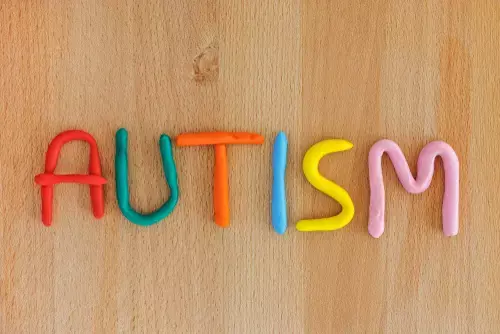- Home
- Medical news & Guidelines
- Anesthesiology
- Cardiology and CTVS
- Critical Care
- Dentistry
- Dermatology
- Diabetes and Endocrinology
- ENT
- Gastroenterology
- Medicine
- Nephrology
- Neurology
- Obstretics-Gynaecology
- Oncology
- Ophthalmology
- Orthopaedics
- Pediatrics-Neonatology
- Psychiatry
- Pulmonology
- Radiology
- Surgery
- Urology
- Laboratory Medicine
- Diet
- Nursing
- Paramedical
- Physiotherapy
- Health news
- Fact Check
- Bone Health Fact Check
- Brain Health Fact Check
- Cancer Related Fact Check
- Child Care Fact Check
- Dental and oral health fact check
- Diabetes and metabolic health fact check
- Diet and Nutrition Fact Check
- Eye and ENT Care Fact Check
- Fitness fact check
- Gut health fact check
- Heart health fact check
- Kidney health fact check
- Medical education fact check
- Men's health fact check
- Respiratory fact check
- Skin and hair care fact check
- Vaccine and Immunization fact check
- Women's health fact check
- AYUSH
- State News
- Andaman and Nicobar Islands
- Andhra Pradesh
- Arunachal Pradesh
- Assam
- Bihar
- Chandigarh
- Chattisgarh
- Dadra and Nagar Haveli
- Daman and Diu
- Delhi
- Goa
- Gujarat
- Haryana
- Himachal Pradesh
- Jammu & Kashmir
- Jharkhand
- Karnataka
- Kerala
- Ladakh
- Lakshadweep
- Madhya Pradesh
- Maharashtra
- Manipur
- Meghalaya
- Mizoram
- Nagaland
- Odisha
- Puducherry
- Punjab
- Rajasthan
- Sikkim
- Tamil Nadu
- Telangana
- Tripura
- Uttar Pradesh
- Uttrakhand
- West Bengal
- Medical Education
- Industry
Maternal iodine deficiency not linked to autism in offspring: Study

UK: Maternal iodine deficiency do not lead to an increased autism risk in offspring, reveals results from a recent study in the journal BMC Pediatrics.
There is an increase the requirement of maternal iodine during pregnancy to supply thyroid hormones essential for the development of fetal brain. Iodine deficiency in mothers can lead to hypothyroxinemia, a reduced fetal supply of thyroid hormones which. Hypothyroxinemia in the first trimester has been linked to an increased risk of autism spectrum disorder (ASD) in the child. No study till date has however, explored the direct link between maternal iodine deficiency and ASD diagnosis in offspring. Considering this Darren Charles Greenwood, University of Leeds, Leeds, UK, and colleagues aimed to investigate he association between maternal iodine status in mid-pregnancy and an ASD diagnosis in the child, across a continuous range of urinary iodine concentrations.
For the purpose, the researchers measured urinary iodine concentrations (UIC) and iodine/creatinine ratios (I:Cr) in 6955 mothers at 26–28 weeks gestation participating in the Born in Bradford (BiB) cohort. Maternal iodine status was examined in relation to the probability of a Read (CTV3) code for autism being present in a child's primary care records through a series of logistic regression models with restricted cubic splines.
Key findings of the study include:
- Median (inter-quartile range) UIC was 76 μg/L (46, 120) and I:Cr was 83 μg/g (59, 121) indicating a deficient population according to WHO guidelines.
- Ninety two children (1·3%) in the cohort had received a diagnosis of ASD by the census date.
- There was no evidence to support an association between I:Cr or UIC and ASD risk in children aged 8–12 years.
"There was no evidence of an increased clinical ASD risk in children born to mothers with mild-to-moderate iodine deficiency at 26 weeks gestation. Alternative functional biomarkers of exposure and a wider range of conditions may provide further insight," concluded the authors.
The study, "Maternal iodine status in a multi-ethnic UK birth cohort: associations with autism spectrum disorder," is published in the journal BMC Pediatrics.
DOI: https://bmcpediatr.biomedcentral.com/articles/10.1186/s12887-020-02440-y
Dr Kamal Kant Kohli-MBBS, DTCD- a chest specialist with more than 30 years of practice and a flair for writing clinical articles, Dr Kamal Kant Kohli joined Medical Dialogues as a Chief Editor of Medical News. Besides writing articles, as an editor, he proofreads and verifies all the medical content published on Medical Dialogues including those coming from journals, studies,medical conferences,guidelines etc. Email: drkohli@medicaldialogues.in. Contact no. 011-43720751


